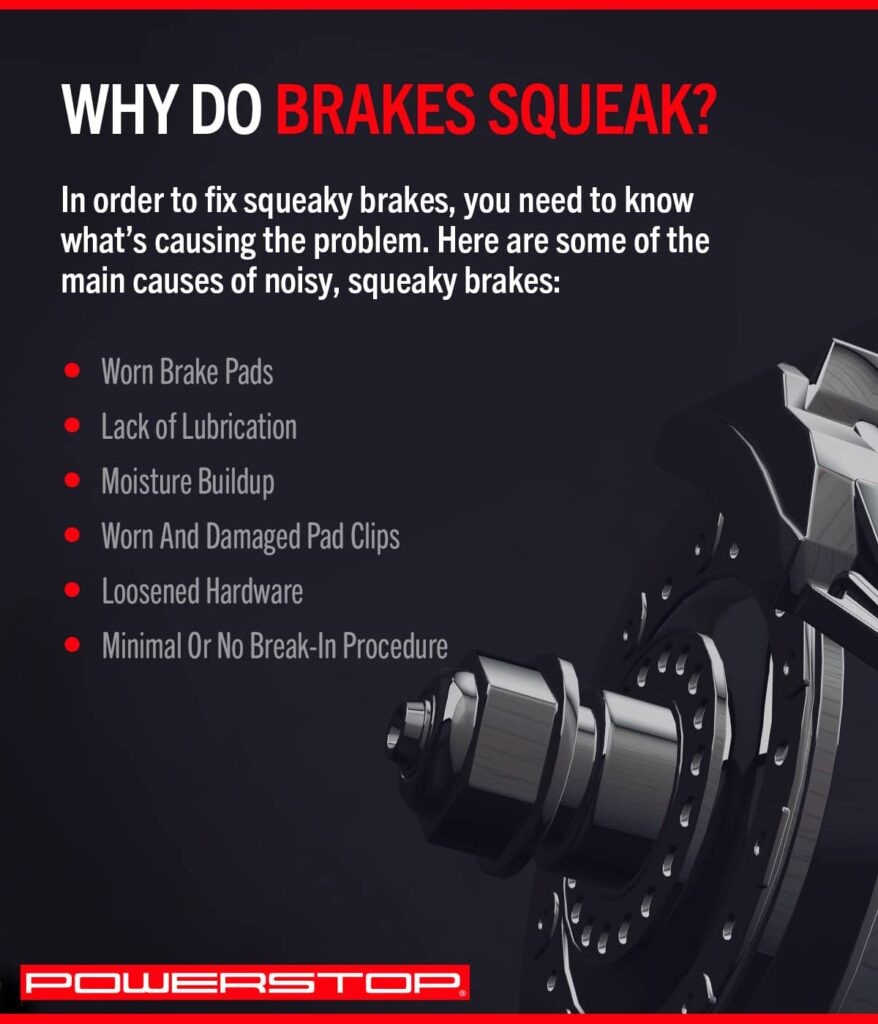That high-pitched squeal emanating from your brakes can be more than just annoying; it can signal a serious problem. Understanding why your brakes squeal is crucial for maintaining your vehicle’s safety and performance. This article delves into the common causes of brake squeal and provides solutions to silence the noise and ensure your brakes are in top condition.
Common Causes of Brake Squeal
Several factors can contribute to that irritating brake squeal. While not all squeals indicate a critical issue, it’s important to diagnose the cause to prevent potential problems. Here are some of the most frequent culprits:
Worn Brake Pads
Brake pads are designed with wear indicators that emit a high-pitched squeal when they’re nearing the end of their lifespan. This squeal indicates that the pad material has worn down significantly, usually to about ⅛” – ¼” of remaining material. When this happens, the metal backing plate of the brake pad contacts the rotor, creating the noise. Replacing your brake pads is the solution.
Damaged or Missing Pad Clips
Pad clips play a vital role in securing brake pads to the calipers and minimizing vibrations. Worn or missing clips can allow the pads to move excessively, leading to squealing. Always replace pad clips when installing new brake pads. Quality brake upgrade kits often include all necessary hardware.
Insufficient Lubrication
Proper lubrication is essential for smooth brake operation. Lack of lubrication on the caliper pins, backing plates, or other contact points can cause friction and squealing. Regularly inspecting and lubricating these areas can prevent this issue.
Loose Brake Hardware
Loose components within the braking system, such as calipers, hoses, or pins, can vibrate and generate noise. Ensuring all hardware is properly tightened and secured can eliminate squealing caused by loose parts.
Improper Break-In Procedure
New brake pads and rotors require a break-in period to ensure optimal performance and prevent squealing. This process involves a series of controlled stops and moderate braking to properly mate the pad and rotor surfaces. Always follow the manufacturer’s recommended break-in procedure.
Solutions for Brake Squeal
Addressing brake squeal often involves simple DIY solutions or professional assistance for more complex issues.
Lubricate Brake Components
Applying brake lubricant to the appropriate areas, such as caliper pins and backing plates, can significantly reduce friction and noise. Caution: Never apply lubricant to the friction surface of the brake pads or rotors.
Perform a Proper Break-In Procedure
If squealing occurs after installing new brakes, ensure a proper break-in procedure is followed. This involves a series of moderate stops to gradually heat and cool the brakes, allowing the pad and rotor surfaces to mate evenly.
Inspect and Replace Hardware
Thoroughly inspect all brake hardware for damage or wear. Replace any worn or damaged components, including pad clips, pins, and other hardware.
Consult a Professional
If the squealing persists after attempting these solutions, consult a qualified brake technician. They can diagnose more complex issues and perform necessary repairs.
Conclusion
Brake squeal can be an early warning sign of potential brake problems. Addressing the issue promptly can prevent further damage and ensure your safety on the road. By understanding the common causes and implementing the suggested solutions, you can silence the squeal and enjoy a quieter, safer driving experience. Regular brake maintenance and inspections are crucial for optimal performance and longevity. If you’re unsure about any aspect of brake repair or maintenance, consulting a qualified mechanic is always recommended.
